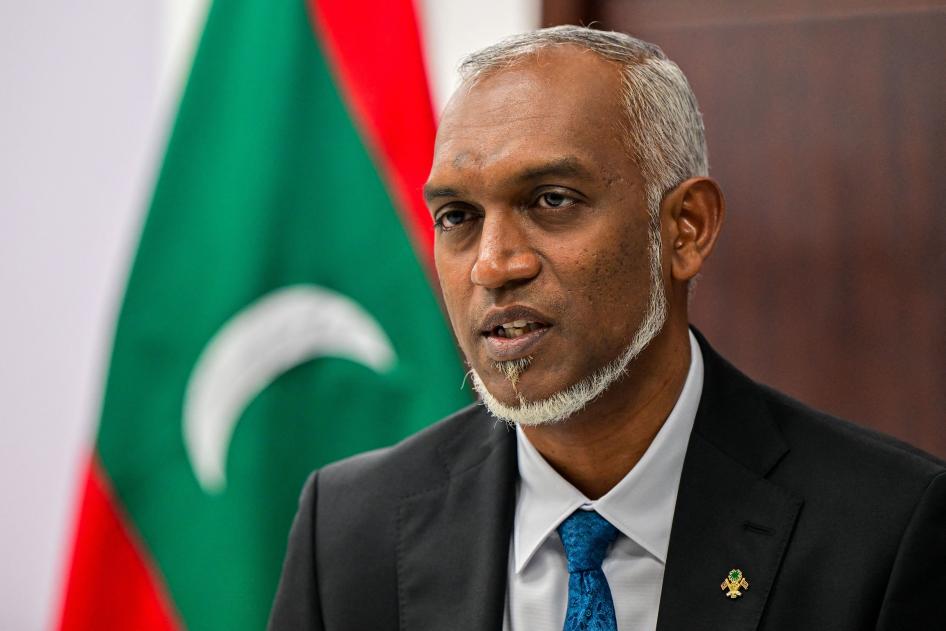(Malé) – The Maldives’ new government should make protecting and promoting human rights a priority, Human Rights Watch said in a letter to President Mohamed Muizzu made public today. Muizzu was elected president on September 30, 2023, and inaugurated on November 17. Human Rights Watch included an agenda detailing recommendations on human rights priorities for the president.
“President Muizzu has an important opportunity to make human rights a meaningful and concrete priority,” said Elaine Pearson, Asia director at Human Rights Watch. “He needs to show that his ‘pro-Maldives’ policy protects civil society and has at its center the rights of all Maldivians, particularly marginalized communities and the victims of past crimes.”
The new government should address its human rights commitments in seven key areas, including: strengthening and enforcing the Maldives’ environmental laws to protect island communities, amending the Freedom of Peaceful Assembly Act and the Evidence Act in line with international human rights standards, repealing the Maldives’ 2014 Penal Code provisions that criminalize same-sex conduct, enacting critical legislative reforms to strengthen judicial independence, and providing long-awaited accountability for past crimes.
In his first interview with international media as president, Muizzu promised that his government would be “clean,” “transparent,” and “accountable.” He also acknowledged longstanding problems with political influence over the judiciary and promised to take steps to ensure that the Maldives’ judicial system would be both “free and fair.”
However, following his election victory, Muizzu’s first act was to secure the release from prison of the former president, Abdulla Yameen, who had been convicted of money laundering in December 2022. The Yameen government was responsible for serious abuses, including arbitrary arrests of political opponents and critics and a crackdown on free speech.
Muizzu has not indicated whether he will extend the mandate of the Commission on Deaths and Disappearances, a body established in 2018 to investigate past killings and enforced disappearances of government critics. The commission’s investigations into some of these crimes, including the 2014 disappearance of a journalist, Ahmed Rilwan and 2017 murder of a blogger, Yameen Rasheed, faced delays, judicial misconduct, and political interference. The commission’s mandate expires at the end of the year.
Muizzu has promised to use his presidency to pursue a number of large-scale development projects, including land reclamation works, throughout the country. He said in an interview that the Maldives takes environmental protection “very seriously.”
Human Rights Watch has documented the failures of previous Maldivian governments to properly enforce environmental protections laws, including by failing to adequately compensate residents who experience loss of income or livelihood as a result of development projects. The new Maldivian government should stop ignoring and undermining its own environmental protection policies, and instead ensure that adequate mitigation measures are taken for all development projects before they are allowed to proceed, Human Rights Watch said.
"The agenda proposed by Human Rights Watch shows the way forward for the Maldivian president and his government on key rights issues for these next five years,” Pearson said. “We are counting on them to act on it.”








